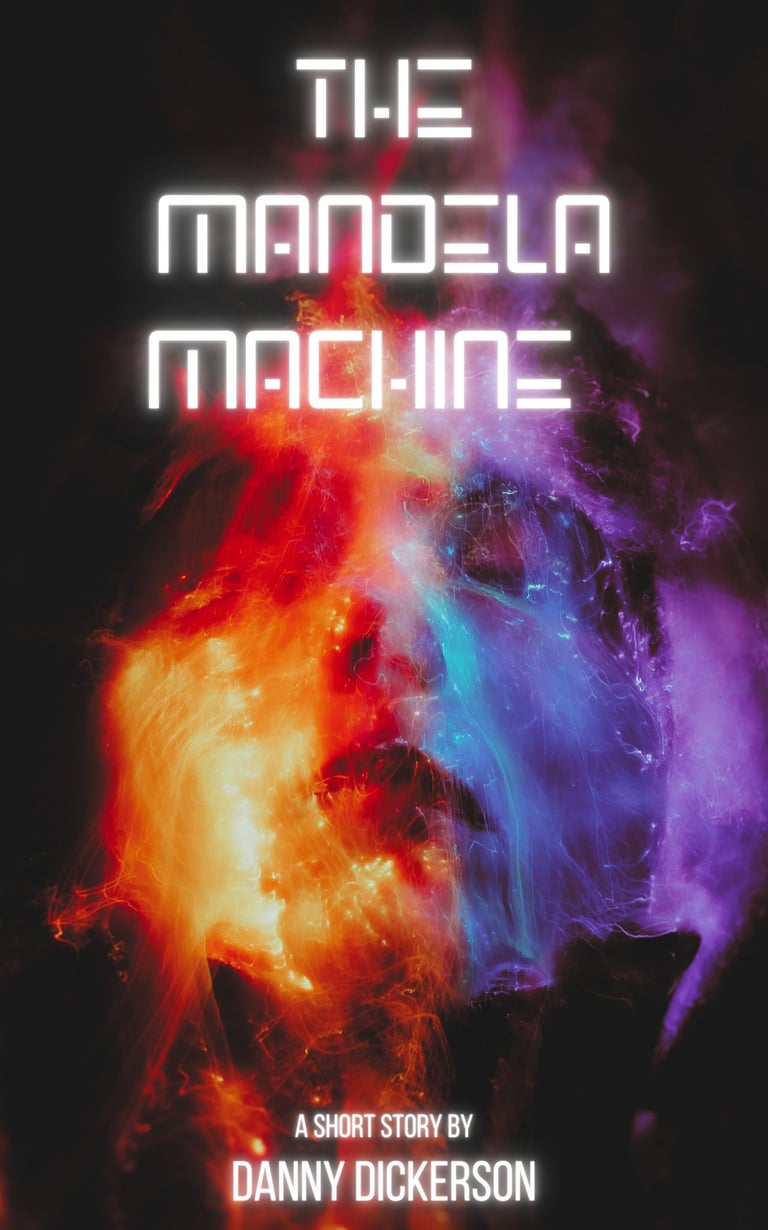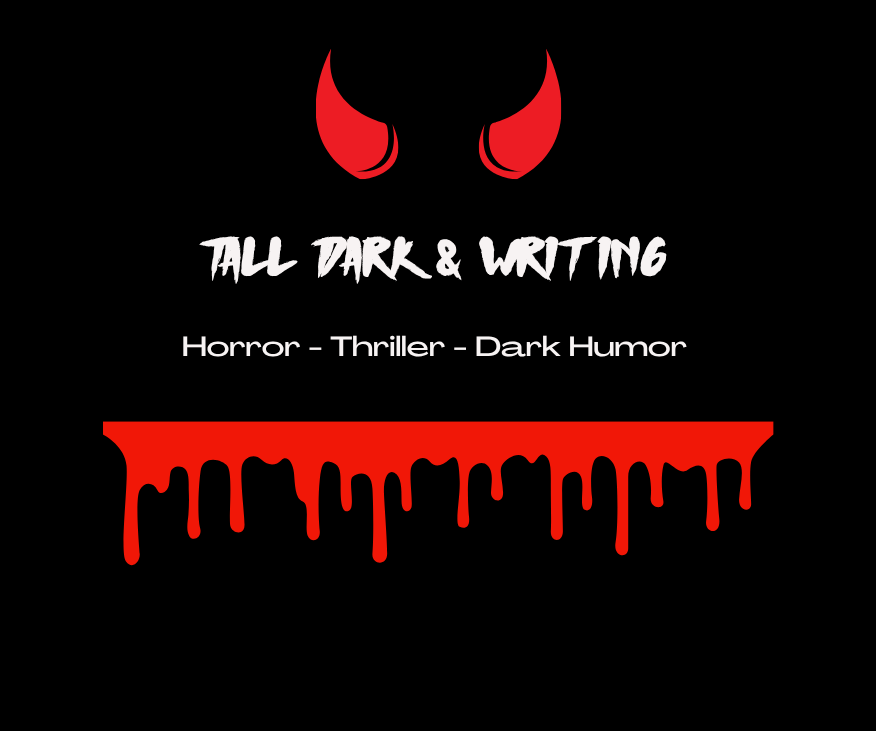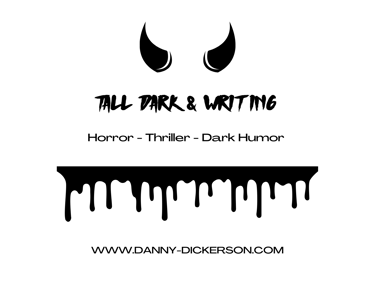

Victor Raines worked endless hours in the lab at the university. Something had haunted him ever since 2012. That year, his nights were filled with fevered nightmares and visions of collapse, fire, and endings that echoed of the Mayan doomsday calendar.
As a boy, Victor had always been attuned to his instincts in a way that defied explanation. It wasn’t simple intuition. He had something closer to a psychic sensitivity. A restless awareness that spilled into his dreams, most often as nightmares. They were brought on without control, as if he were being shown things not meant for him to see. Whether it was a premonition about him or someone close, or events in the world far bigger than him.
Before 2012, those nightmares reached a fever pitch. He dreamed of the Mayan apocalypse with terrifying clarity. Yet, when the date came and went, the world stood firm. No fires from the sky. No final reckoning.
What unsettled Victor wasn’t what happened, it was what didn’t. His inner voice whispered that the Mayans had been right. The world had ended. Something had changed.
And then he began noticing the differences.
Logos, brands, words—small, almost laughable anomalies. The Monopoly man had no monocle. Fruit of the Loom had no cornucopia. The Berenstain Bears had always been spelled with an “a,” not an “e”. Even iconic movie lines sounded wrong: Darth Vader never said, “Luke, I am your father.” Pikachu’s tail had never been tipped in black. These things seemed trivial to others, brushed off as memory mistakes. But Victor knew better.
They weren’t mistakes. They were fractures in reality.
The Mandela Effect. That’s what people were calling it. But to Victor, it was proof that his nightmares had been true all along. The world had ended in 2012. Humanity had slipped into another reality, patched together like a poorly copied film reel.
And the young man of science, Victor Raines intended to prove it.
Much like his rival, Elliot Crane, better known as “Perpetuious,” Victor was determined to become the most influential physicist of their era. Both were prodigies, each pursuing discoveries that bent the edges of possibility. Crane had vanished into his own experiment of creating perpetual motion, consumed by ambition and remembered as a legend. To Victor, that was a challenge. If Crane had gone too far, then he would go further.
Where others whispered of superstition, Victor sought machinery. He began building what would become his obsession: The Mandela Machine.
It wasn’t a collider on CERN’s scale, but it was something more focused, but more dangerous. A quantum resonance engine whereby protons bent by superconducting magnets, accelerated in opposite directions, colliding at a speed that brushed the very edge of light. But Victor added his own innovation: a durable resonance chamber designed not only to record the debris of collisions but to amplify it, and to force decoherence into visibility. Where CERN had found the Higgs boson (The God Partical), Victor intended to pry open the seams of reality itself.
He worked in secret, recording every attempt, each failure adding fuel to his obsession. Then, one night, the chamber hummed with power unlike anything he had achieved before. The collision of protons tore at space-time itself, creating a wound in the air.
It wasn’t a hole so much as a shimmer with black liquid rippling outward, reflecting distorted fragments of distant stars and alien skies. Reality bent like water, and for a moment Victor saw through to somewhere else as some of its waves became bright and transparent. It was a window to another time and place.
Instinct pulled him forward. His hand hovered inches from the rippling void, a whisper in his mind urging him to step through. But the energy waned, the shimmer collapsing as the proton stream lost strength. Desperate, Victor snatched up his phone from the ring-light mount, dipping the camera lens into the phenomenon.
When he reviewed the footage later, he was dumfounded by his discovery. The recording showed ever so clearly, another place, and another world.
Victor dreamt about it for weeks. He couldn’t shake the vision of what lay on the other side. He knew it was real. His phone had captured proof. And he would go further but not just in the name of science, but to be a pioneer, and stand among all the great scientists before him.
He redesigned the Mandela Machine, enlarging the chamber, stabilizing the resonance field, pushing power far beyond safe thresholds. His notes grew darker, his narration more fevered as he boldly spoke into the recorder: “CERN only brushed the surface. They opened the lock. I built the key.”
The night of his greatest experiment, the resonance chamber roared with a new life. The sheer power of the machine was immense. As it opened up the gateway from one dimension to the next, something went wrong. He was too close this time, his body bathed in the storm of colliding protons. The Higgs field itself. The so-called God Particle had intertwined with him, binding his very atoms to the machine.
The shimmer didn’t close. It pulled him in.
In that instant, Victor Raines ceased to be merely human. He became something else—something born of quantum fire and fractured dimensions. His flesh pulsed with unstable light, energy threading through him in violent arcs. Bolts of color: blue, white, and crimson danced around his face and body. His form cracked and reformed like shattered glass endlessly repairing itself.
He was no longer contained by his humanity. He was becoming the Mandela Machine.
Through the rippling tunnel, galaxies blurred past him. He saw the familiar constellations whip by, then stranger skies: stars too large, too near, their colors bleeding into impossible spectrums. Worlds tumbled into view with blue earths, red earths, and earths scarred black and gray.
One world pulled him down. Atmosphere scorched around his shielding sphere, muffling his screams as he descended. His body remained half-light, half-matter with his limbs of radiant energy flickering through the protective shell.
And below, he saw them.
Creatures of myth walked the land as if they had never been stories at all. Cyclopes with iron hammers marched across a coastline fortress. Harpies wheeled in black clouds above a battlefield. A serpent with seven heads writhed in the sea, its scales reflecting fire. Titans towered in the distance, their colossal frames shaking mountains with every step.
And in the heart of it all, the gods.
Zeus himself hurled lightning spears from Olympus. Athena commanded phalanxes of bronze-clad warriors. Poseidon raised tidal waves to crush enemy ships. The air was alive with war between immortals.
Victor plummeted into their midst.
Instinct took over. As he neared the ground, his arms surged with electricity. He thrust his palms outward, and gravity bent to him. His descent slowed, stopped. From the beaches below, mortals and gods alike looked up at the blazing figure suspended in the sky. It was radiant, alien, and terrifying.
Zeus roared. A bolt the size of a mountain range tore through the sky and struck Victor.
But Victor absorbed it. His form shuddered, cracked with fissures of light, and then he flung the thunder back.
The gods attacked. Hera’s peacocks burst into flame, swooping at him like comets. Ares charged with a spear glowing red with war’s fury. Poseidon’s trident split the earth and sent rivers boiling upward.
Victor fought back. His power detonated in waves, leveling fortresses, hurling armies into the sea. He tore down temples with a sweep of his arm. His voice thundered across the land as he clashed with Zeus bolt for bolt, each strike brighter than the sun.
The gods, in awe and fury, gave him a name.
“Chasmidon,” they cried. Devourer of Boundaries. Destroyer of Worlds.
And as they named him, he proved the name true.
Victor rose higher, his body swelling with impossible energy. His sphere blazed like a newborn star. The sky split. Asteroids rained from the heavens. Tidal waves crushed coasts. The planet itself cracked beneath his wrath. With one final scream, Victor unleashed the totality of his quantum core, shattering the world into drifting stone and ash.
When silence returned, only Chasmidon remained, floating in the void, unharmed, his light flickering coldly. He was no longer Victor Raines. He was what the machine had remade him to become. And space itself answered, dragging him onward.
Another tunnel. Another reality. Another world to face his wrath.
Then, planet fall.
The air tore at his sphere as he entered the atmosphere of another Earth. But this one was wrong too. The cities below were twisted, their skylines pierced by impossible towers with black monoliths of alien metal, bristling with strange energy conduits. They pulsed like beating hearts, tethered by cables as thick as highways, stretching from city to city like a web.
The world was enslaved.
Motherships hovered silently above every metropolis, their hulls gleaming like obsidian, their shadows blotting out the sun. The ground swarmed with alien patrols. They were six-limbed creatures who walked like spiders, their eyes glowing with cold intelligence. Humans trudged in chains beneath them, herded like cattle, their faces hollowed by generations of servitude.
Chasmidon descended, his luminous form tearing the clouds apart.
He hovered above what he recognized as Beijing, though its identity was buried beneath alien structures. A tower loomed over Tiananmen Square, humming with an unnatural resonance, its spires stabbing into the sky like spears. The tower pulsed as if aware of him.
Alarms shrieked across the city. Sirens of human design mixed with alien frequencies that rattled the bones. Fighter jets darted upward, circling him like gnats. On the streets, tanks and troops poured into formation, weapons trained on him: “the glowing intruder,” they deemed him. Billboards that once carried propaganda now displayed his image in real time: a figure of living light, haloed in destructive potential.
To the enslaved, he was a vision. And while some were whispering an angel, others a demon.
The aliens reacted faster. Shuttles detached from the mothership, streaming into the atmosphere like black daggers. Orbs of light unlatched from their underbellies, trailing the human military like spectral hounds.
A voice rang out across the city and broadcast through every screen, every loudspeaker, every device. It was alien, layered with static, then translated into dozens of human tongues:
“Identify. Submit. Or be destroyed.”
The words echoed across Beijing, and then across the planet, every nation hearing the ultimatum.
Chasmidon stared at the vast screens, his reflection glaring back at him. A figure no longer human, alive with color and fracture, a ghost of man wrapped in energy. His hollow voice boomed, resonant with the machine inside him.
“I am Chasmidon—devourer of boundaries and destroyer of worlds.”
The declaration rippled across the frequencies. Both alien and human froze, their weapons trembling. And then, all at once, there was chaos.
The sky split with nuclear fire. Nations launched their arsenals at the motherships. The motherships retaliated with beams of pure annihilation carving trenches into the earth. Beijing vanished in a curtain of quantum flame.
And Chasmidon moved among it, not as savior nor enemy, but as the cataclysm itself. His palms erupted with blinding energy, vaporizing fighter jets. His shockwaves toppled alien towers, their spires collapsing like dying stars. He tore the motherships from the heavens, ripping them apart with gravitational force, scattering burning debris across continents.
But the destruction spread beyond his control. His presence escalated the war. Every shot, every strike, every detonation pushed the planet closer to total ruin. Humanity fought the aliens, the aliens fought him, and the world itself buckled beneath the violence.
When the smoke cleared, nothing remained but dust and silence. The towers were rubble, the motherships smoldering husks. Cities lay in ruin, seas boiled, skies blackened. Earth was dead.
And through the wreckage floated only one figure. He was unchanged, untouched, and glowing cold against the void: Chasmidon.
He turned his gaze upward. Another tunnel was opening. Another world awaited. And with every annihilation, his power deepened, his humanity slipped further away, and the universe whispered his name with dread.
The tunnel swallowed him again, spitting him out above another Earth. But this one was colder, darker, organized with an iron precision.
He floated high above a city he recognized, yet could not reconcile. Berlin stretched in every direction—its skyline dominated by brutalist spires carved with the crooked cross. Massive banners fluttered, red fields drenched with black insignia. Stadiums roared with millions chanting in unison, their voices raised in worship of conquest.
The Nazis had won.
Across the oceans, the Reich had spread its dominion. North America was carved into colonies, its people enslaved beneath the boot of a global Reich. History had bent, diverged. The Allies never triumphed. The world had been swallowed whole by fascism.
Spotlights caught his radiant form in the sky. Sirens blared. Armored zeppelins rose from the towers, flanked by jet-black aircraft adorned with swastikas. At their helm: weapons of unimaginable scale, designed through decades of unchecked Nazi science—particle cannons, weather control satellites, armies of genetically altered soldiers.
From the streets, the chant rose: “Ein neuer Gott!” A new god, they said.
Hitler appeared on the holoscreens as he blared his threatening words with fierce animosity. His voice carrying across continents as he spoke:
“Swear allegiance to the Thousand-Year Reich. Or be obliterated.”
Chasmidon answered with silence. His hands glowed and a fire within him burned along with his frustration, as each planet, each Mandela Effect was a reality filled with a reality he didn’t want. He felt that nobody else would want it too. All he saw was suffering and power corrupted.
And with every world he destroyed, he unknowingly was absorbing its dark energy. Victor, the brilliant young man that use to be, had become the destroyer of worlds.
He was Chasmidon.
The Reich fired first. Particle cannons ripped the sky open, painting it in arcs of death. Zeppelins descended like vultures, cities lit up with anti-air fire. But Chasmidon moved like a star unchained. He carved through steel with a sweep of his arm, detonated zeppelins in blossoms of quantum flame, cracked open skyscrapers as though they were brittle bone.
The Reich unleashed its greatest weapon: an orbital array, channeling power through a mirror of the sun itself. A white beam split the clouds, burning a path straight for him.
Chasmidon caught it. Held it. And turned it.
And burned their world to cinders.
The Reich fell, but so too did the planet. Forests were ash, oceans boiled, cities nothing but ruin. As Chasmidon floated among the black smoke, he realized at that moment, that he had become indistinguishable from those he destroyed.
The interdimensional tunnel yawned again.
He entered a world where mushroom clouds already bloomed. World War III had begun—not against alien invaders or the Nazi’s, but against themselves. Nations tore each other apart with nuclear fire. The sky was red with fallout. Radiation ate the ground. Cities were skeletons of glass and dust.
Here, humanity had no masters but their own hatred.
Yet they still turned on him, believing him a weapon unleashed by their enemies. Missiles streaked toward his form. He answered, almost without thought. His retaliation obliterated continents. Earth cracked open and sank into its own poisoned seas as he demonstrated he ever-growing power.
On to another world of decay.
This one choked with infection. A virus had gutted humanity, leaving only shambling corpses gnashing in endless hunger. Zombies were everywhere. Streets overflowed with rot. The air carried screams. Humanity had already lost—but when the few that had yet to turn into the undead had seen him descend, they ran to him, begging, hoping for salvation.
But their salvation never came. Not in the heart and mind of Chasmidon. He was their destroyer, not their savior.
The undead swarmed him in the thousands, devouring anyone in their path that may be hiding. He incinerated them in waves, but the plague spread faster, endlessly multiplying. There were thousands upon thousands of zombies.
In desperation, he released everything ounce of power inside of him. Cities, oceans, and continents were gone in white fire resembling a nuclear detonation. The last scream of that horrid world ended in the sound of total oblivion.
And so it went.
World after world, tunnel after tunnel. Each reality worse than the last. Cybernetic hive-minds. Demon-worshipping civilizations. Realities where humanity never rose at all. Each one greeted him as god, savior, devil, or weapon. And each one burned.
With every destruction, he absorbed more of the darkness he unleashed. His light grew dimmer, colder, a dark force in his increasing radiant form. The machine inside him, that became him, was now a curse. He was trapped in an infinite prison of fractured realities. No small Mandela shifts. Only extremes. Worlds beyond nightmare.
And as he destroyed them, they destroyed him by damaging his soul.
He was becoming the very monster he sought to conquer.
Then, at last, the tunnel deposited him into a sky he recognized and a society that was familiar. The Earth exactly as he remembered. Cities spread below—alive, bustling. No motherships. No Reich banners. No plague.
It was home. Or was it.
Victor, or what was left of Victor—hovered above it all. His hands vibrating with energy which he tried to stop. His body pulsed with the hunger of destruction that he fought to tame. His hollow eyes scanned the planet that he was desperate to know was his or not.
In the silence of the moment, the reality of the situation would soon come to light, and either in this world or another, they would come to know his name.


